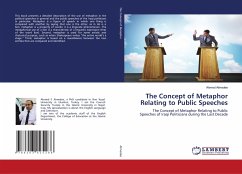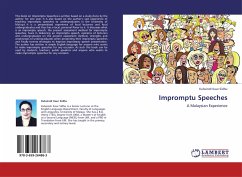It is widely acknowledged that language and politics are interconnected; Undoubtedly, language assumes a critical function as a vehicle through which to influence politics. The use of figurative language in political discourse is deemed a controversial and dubious issue. On the one hand, it is viewed by some scholars as unfavorable. However, on the other hand, other scholars strongly believe that by using figurative language, politicians can dramatically influence public opinion and through the means of language manipulation, politicians can convey the ideology they wish; they can choose to guide or mislead; or to incite war or bring peace. This book attempts to study the uses and functions of the rhetorical language in fifteen Arabic political speeches, namely, the Iraqi Presidential speeches. It tries to explain whether the figurative language is employed by politicians to achieve political gains or just used for its aesthetic value. The study also investigates the translation of the rhetorical figures from Arabic into English, adopting the Skopos Theory approach.








